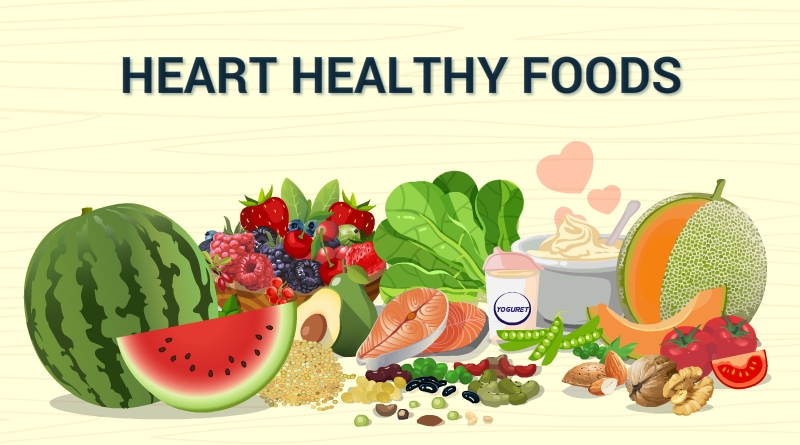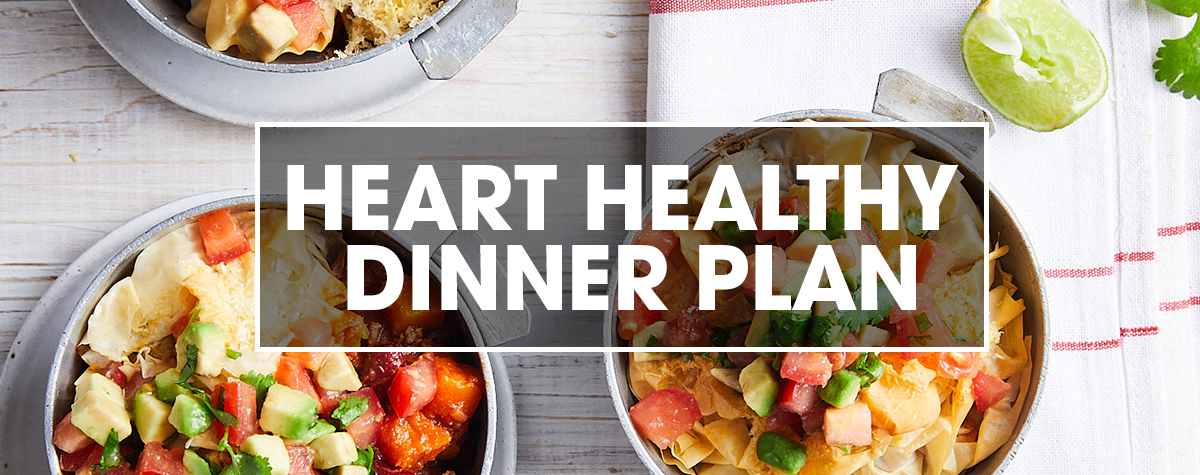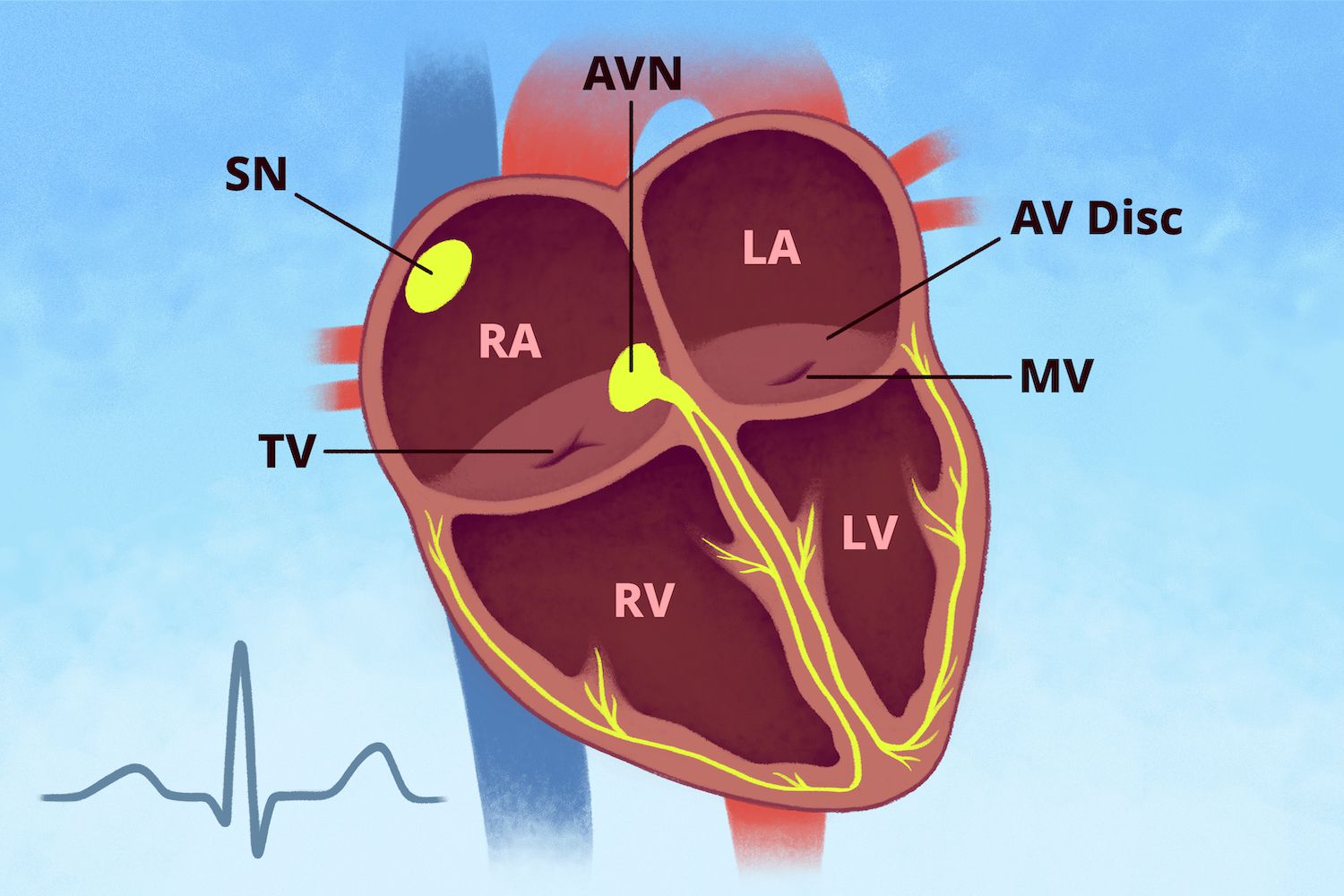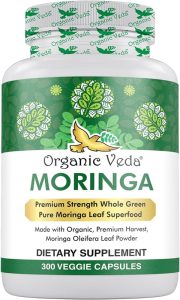The Importance Of Heart Health| The Ultimate Good Diet For Heart Health| Safety Considerations For Heart-healthy Diets| The Ideal Heart-healthy Diet For Different Age Groups| Meal Planning For Heart Health| Shopping And Cooking Tips For Heart-healthy Diets| Maintaining A Heart-healthy Lifestyle| Tracking And Monitoring Heart Health Progress| Staying Motivated And Overcoming Challenges| Resources And Further Reading|
A good diet is essential for a healthy, safe, and ideal heart. It plays a vital role in maintaining heart health and preventing cardiovascular diseases.
Eating a balanced diet rich in fruits, vegetables, whole grains, lean proteins, and healthy fats helps keep your heart in top shape. By following a heart-healthy diet, you can reduce the risk of heart disease, manage blood pressure and cholesterol levels, maintain a healthy weight, and improve overall well-being.
A healthy diet also includes limiting processed foods, sugary drinks, and sodium intake. Making small, gradual changes to your eating habits can have a significant impact on your heart health, allowing you to enjoy a long and active life.
The Importance Of Heart Health
Heart health is crucial for overall wellbeing. Maintaining a good diet, ensuring safety, and striving for an ideal heart condition are essential to promote a healthy cardiovascular system.

Understanding The Impact Of Diet On Heart Health
The importance of heart health cannot be overstated. A healthy heart is the foundation for overall well-being and longevity. One of the key factors in maintaining a healthy heart is following a good diet. What we eat has a direct impact on our heart health. By making conscious choices and adopting a heart-healthy diet, we can significantly reduce the risk of heart disease and other cardiovascular conditions.
The Role Of Diet In Ensuring Heart Safety
When it comes to heart health, diet plays a vital role. The food we consume provides the necessary nutrients, vitamins, and minerals that are instrumental in maintaining a healthy heart. A heart-healthy diet primarily focuses on reducing the intake of unhealthy fats, sodium, and cholesterol while increasing the consumption of fruits, vegetables, whole grains, lean proteins, and healthy fats.
To ensure a safe and healthy heart, it is essential to adopt certain dietary habits:
- Limit the consumption of saturated and trans fats: These fats can raise the levels of LDL, or “bad” cholesterol in the body, leading to an increased risk of heart disease.
- Choose healthy fats: Incorporating sources of healthy fats, such as avocados, nuts, seeds, and olive oil, can help promote heart health by reducing LDL cholesterol levels and increasing HDL, or “good” cholesterol.
- Reduce sodium intake: Excessive salt consumption can contribute to high blood pressure, which is a significant risk factor for heart disease. Opting for low-sodium alternatives and avoiding processed foods can help keep blood pressure in check.
- Increase fiber-rich foods: Foods high in soluble fiber, such as oats, beans, lentils, fruits, and vegetables, can help lower cholesterol levels and aid in maintaining a healthy heart.
- Emphasize plant-based foods: Fruits, vegetables, whole grains, and legumes are rich in antioxidants, vitamins, and minerals that support heart health. Including these foods in our diet can help reduce the risk of heart disease.
- Moderate alcohol consumption: While moderate alcohol intake, such as a glass of red wine, has shown potential heart benefits, excessive alcohol consumption can lead to negative health effects. It is crucial to consume alcohol in moderation or avoid it altogether.
The Ideal Heart Diet For Optimal Heart Health
Adopting an ideal heart diet can significantly contribute to maintaining optimal heart health. This diet includes the following:
| Food Group | Health Benefits |
|---|---|
| Fruits and Vegetables | Rich in antioxidants, vitamins, and minerals that support heart health. They also contribute to healthy blood pressure levels. |
| Whole Grains | High in fiber, which aids in controlling cholesterol levels and reducing the risk of heart disease. |
| Lean Proteins | Provide essential amino acids without the added unhealthy fats found in other protein sources. |
| Healthy Fats | Sources of omega-3 fatty acids, such as fatty fish, help reduce inflammation and promote heart health. |
| Low-Fat Dairy | Provides vital nutrients like calcium and vitamin D without contributing excess saturated fats. |
By following the ideal heart diet and making smart choices in our food habits, we can create a positive impact on our heart health. Prioritizing heart safety through a well-balanced diet sets the foundation for a long and healthy life.
The Ultimate Good Diet For Heart Health
When it comes to maintaining a healthy heart, one of the most crucial aspects is following a well-balanced and nutritious diet. By fueling your body with the right foods, you can significantly reduce the risk of heart disease and promote optimal heart health. In this article, we will explore the key components of a heart-healthy diet, the benefits of incorporating fruits and vegetables for heart health, the importance of whole grains and fiber, as well as the role of lean proteins and healthy fats in supporting cardiovascular wellbeing.

Exploring The Key Components Of A Heart-healthy Diet
A heart-healthy diet focuses on consuming foods that are low in saturated fats, trans fats, and cholesterol. It emphasizes the intake of nutrient-rich foods, including fruits, vegetables, whole grains, lean proteins, and healthy fats.
Incorporating Fruits And Vegetables For Optimal Heart Health
Fruits and vegetables are packed with essential vitamins, minerals, antioxidants, and dietary fiber that play a crucial role in maintaining heart health. They help to lower blood pressure, reduce the risk of heart disease, and support overall cardiovascular function.
Here are some examples of heart-healthy fruits and vegetables you can incorporate into your diet:
| Fruits | Vegetables |
|---|---|
| Apples | Broccoli |
| Oranges | Spinach |
| Berries | Kale |
| Grapes | Carrots |
Including Whole Grains And Fiber To Support Heart Health
Whole grains are excellent sources of fiber, vitamins, and minerals that promote heart health. They help to reduce cholesterol levels, lower the risk of heart disease, and regulate blood sugar levels. By incorporating whole grains into your diet, you can enjoy benefits such as improved digestion, weight management, and enhanced cardiovascular function.
Here are some examples of heart-healthy whole grains:
- Oats
- Quinoa
- Brown rice
- Barley
Fiber, found in fruits, vegetables, whole grains, and legumes, is crucial for maintaining a healthy heart. It aids in reducing cholesterol levels, controlling blood pressure, and promoting regular bowel movements.
Incorporating Lean Proteins And Healthy Fats Into Your Diet
Lean proteins and healthy fats are essential components of a heart-healthy diet. They provide vital nutrients, such as omega-3 fatty acids, which play a role in reducing inflammation and supporting heart health.
Some examples of lean proteins that can be included in your diet are:
- Skinless poultry
- Fish, such as salmon and tuna
- Legumes, including beans, lentils, and chickpeas
When it comes to healthy fats, opt for:
- Olive oil
- Avocados
- Nuts and seeds
By incorporating these foods into your heart-healthy diet, you can nourish your body while reducing the risk of developing cardiovascular diseases.
Safety Considerations For Heart-healthy Diets
Safety considerations are crucial for heart-healthy diets. It is important to choose foods that promote heart health while also considering factors such as allergies, medications, and potential interactions with certain medical conditions. With proper precautions, an ideal diet can support a strong and healthy heart.

Consulting With A Healthcare Professional Before Starting Any New Diet
Prior to embarking on any new diet, it is crucially important to consult with a knowledgeable healthcare professional. Your doctor or a registered dietitian can provide personalized guidance tailored to your individual needs, ensuring that the dietary changes you make will be safe and effective for your heart health. Consulting with a healthcare professional is especially important if you have any existing medical conditions or are currently taking medications that may impact your dietary requirements.
Understanding Potential Drug Interactions With Certain Foods
When it comes to heart-healthy diets, understanding potential drug interactions with certain foods is key. Some foods and beverages can interact with certain medications, affecting their absorption, effectiveness, or increasing the risk of side effects. For instance, consuming grapefruit or grapefruit juice can interfere with the way your body metabolizes certain medications, potentially leading to higher levels of the drug in your system. It is therefore important to be aware of any potential food and drug interactions by discussing your medication regimen with your healthcare professional or pharmacist.
Identifying And Managing Food Allergies Or Sensitivities
In addition to considering potential drug interactions, it is equally crucial to identify and manage any food allergies or sensitivities when following a heart-healthy diet. Food allergies can trigger adverse reactions, ranging from mild discomfort to severe life-threatening reactions. Common food allergens include peanuts, tree nuts, milk, eggs, fish, shellfish, soy, and wheat. Sensitivities to certain foods, while not as severe as allergies, can still cause digestive issues or inflammation. If you suspect you have a food allergy or sensitivity, it is essential to undergo appropriate testing and work with a healthcare professional or registered dietitian to develop a safe and suitable dietary plan.
In conclusion, safety considerations play a vital role when adopting a heart-healthy diet. Consulting with a healthcare professional, understanding potential drug interactions, and identifying and managing food allergies or sensitivities are essential steps to take before making any dietary changes. By prioritizing safety and seeking professional guidance, you can ensure that your heart-healthy diet is both effective and safe for your overall well-being.
The Ideal Heart-healthy Diet For Different Age Groups
Eating a healthy diet is crucial for maintaining a strong and healthy heart at every stage of life. However, the specific dietary needs can vary depending on age. In this section, we will explore heart-healthy eating guidelines tailored to different age groups, including children and teenagers, adults, and older adults.

Heart-healthy Eating Guidelines For Children And Teenagers
When it comes to fostering heart health in children and teenagers, establishing good eating habits early on is key. Introducing a variety of nutrient-rich foods can help promote a healthy heart and overall well-being. Here are some guidelines to follow:
- Provide a balanced diet that includes a variety of fruits, vegetables, whole grains, lean proteins, and low-fat dairy products.
- Limit the consumption of sugary beverages and processed snacks, which can contribute to heart disease risk factors such as obesity and high cholesterol levels.
- Encourage regular physical activity to strengthen the heart and maintain a healthy weight.
By adopting these heart-healthy eating habits during childhood and adolescence, individuals can lay the foundation for a healthy heart later in life.
Heart-healthy Eating Guidelines For Adults
Eating right is essential for maintaining heart health throughout adulthood. Here are some heart-healthy eating guidelines for adults:
- Consume a well-balanced diet that consists of fresh fruits, vegetables, whole grains, lean proteins, and healthy fats such as those found in nuts, seeds, and avocados.
- Avoid or limit the intake of processed foods that are high in added sugars, unhealthy fats, and sodium, as they can contribute to heart disease.
- Choose cooking methods that involve minimal added fats and avoid deep-frying or heavy butter and cream-based dishes.
- Control portion sizes to maintain a healthy weight and prevent overeating.
- Engage in regular physical activity to support heart health and overall well-being.
By following these heart-healthy eating guidelines, adults can reduce their risk of heart disease and enjoy a healthier life.
Special Considerations For Heart Health In Older Adults
In older adults, the dietary needs may change due to factors such as decreased metabolism, changes in nutrient absorption, and potential medication interactions. Here are some special considerations to keep in mind for maintaining heart health in older adults:
- Ensure a well-balanced diet that includes foods rich in fiber, antioxidants, and omega-3 fatty acids to support heart health.
- Consider reducing sodium intake to help manage blood pressure levels.
- Stay properly hydrated to support overall cardiovascular function.
- Consult with a healthcare professional to assess any potential interactions between medications and specific foods.
- Engage in regular physical activity that is appropriate for age and overall health condition.
By addressing these special considerations and adopting a heart-healthy diet, older adults can proactively protect their hearts and maintain a good quality of life.
Meal Planning For Heart Health
Eating a heart-healthy diet is an essential part of maintaining good cardiovascular health. By carefully planning your meals, you can create a nutritionally balanced and delicious menu that supports optimal heart function. In this section, we will explore effective tips and strategies for planning heart-healthy meals, incorporating variety and balance into your diet, understanding portion sizes, and practicing mindful eating.

H3tips And Strategies For Planning Heart-healthy Meals/h3
1. Include plenty of fruits and vegetables: These nutrient-rich foods are packed with antioxidants, vitamins, and minerals that promote heart health. Aim to fill half your plate with fruits and vegetables at each meal.
2. Choose whole grains: Opt for whole grain varieties of bread, pasta, and rice, as they are higher in fiber and nutrients compared to their refined counterparts. Whole grains help lower cholesterol levels and reduce the risk of heart disease.
3. Opt for lean proteins: Incorporate lean sources of protein, such as fish, skinless poultry, beans, and legumes, into your meals. These protein sources are lower in saturated fat, which is beneficial for heart health.
4. Limit unhealthy fats: Minimize the intake of saturated and trans fats found in fried foods, processed snacks, and fatty cuts of meat. Instead, choose heart-healthy fats like those found in avocados, nuts, seeds, and olive oil.
5. Reduce sodium intake: Excessive sodium consumption can contribute to high blood pressure, a leading risk factor for heart disease. Be mindful of the sodium content in packaged and processed foods, and aim to use herbs and spices to flavor your meals instead.
H3incorporating Variety And Balance Into Your Diet For Optimal Heart Health/h3
1. Eat a rainbow of colors: Consume a variety of fruits and vegetables in different colors to ensure a wide range of nutrients and antioxidants. For example, include red berries, orange carrots, and green leafy vegetables in your meals.
2. Include plant-based proteins: Incorporate plant-based protein sources like tofu, tempeh, and lentils into your meals. These options are not only heart-healthy but are also rich in dietary fiber, which helps reduce cholesterol levels.
3. Don’t forget healthy fats: While it’s important to limit unhealthy fats, it’s equally crucial to include heart-healthy fats in your diet. Avocados, nuts, seeds, and fatty fish like salmon provide essential omega-3 fatty acids that support heart health.
4. Plan for regular meals and snacks: Avoid skipping meals and aim to spread your food intake throughout the day. This approach helps maintain steady blood sugar levels and prevents overeating during the next meal.
H3understanding Portion Sizes And Practicing Mindful Eating, Ensuring Each H3 Heading Adheres To Html Syntax/h3
1. Practice portion control: Being mindful of portion sizes can help maintain a healthy weight and prevent overeating. Use measuring cups or a food scale to understand recommended serving sizes and adjust accordingly.
2. Listen to your body: Pay attention to your hunger and fullness cues, and eat until you feel comfortably satisfied. Avoid eating too quickly and take the time to savor each bite.
3. Minimize distractions: Eating in front of the TV or while working can lead to mindless eating and overconsumption. Instead, create a calm and peaceful eating environment, focusing on the taste and enjoyment of your meal.
4. Stay hydrated: Drinking an adequate amount of water throughout the day helps maintain proper digestion and keeps you feeling satisfied. Often, feelings of hunger can be mistaken for thirst.
By incorporating these tips and strategies into your meal planning, you can ensure a heart-healthy diet that supports optimal cardiovascular health. Remember to consult with a healthcare professional or registered dietitian for personalized guidance based on your specific health needs.
Shopping And Cooking Tips For Heart-healthy Diets
Eating a heart-healthy diet is crucial for improving your cardiovascular health and reducing the risk of heart disease. It all starts with making smart choices at the grocery store and in the kitchen. By selecting the right ingredients and employing healthy cooking techniques, you can create delicious and nutritious meals that are good for your heart. In this article, we will explore some valuable shopping and cooking tips that will help you maintain a heart-healthy diet. Let’s dive in!

Choosing Heart-healthy Foods At The Grocery Store
When it comes to shopping for heart-healthy foods, it’s essential to know what to look for. Here are a few tips to keep in mind:
- Focus on fresh fruits and vegetables packed with essential vitamins, minerals, and fiber. Aim for a colorful variety to ensure you’re getting a wide range of nutrients.
- Opt for whole grains over refined grains. Look for products labeled “whole wheat,” “whole oats,” or “whole grain” to ensure you’re getting the maximum nutritional value.
- Choose lean sources of protein, such as skinless poultry, fish, legumes, and tofu. These options are lower in saturated fat, which can help support heart health.
- Limit your intake of processed and packaged foods that are often high in unhealthy fats, sodium, and added sugars. Check food labels and opt for low-sodium or no-added-sugar alternatives.
Smart Cooking Techniques To Reduce Unhealthy Fats And Sodium
When it comes to cooking heart-healthy meals, it’s all about using smart techniques that reduce the use of unhealthy fats and sodium. Here are some cooking tips to keep your meals nutritious:
- Choose healthy cooking oils like olive oil or canola oil instead of using solid fats like butter or margarine.
- Bake, grill, roast, or steam your food instead of frying it. These cooking methods help retain the flavor and nutrients without adding excess unhealthy fats.
- Season your dishes with herbs, spices, and citrus juices to enhance the flavor. This way, you can reduce the need for added salt, which can contribute to high blood pressure.
- Use non-stick cookware to minimize the need for cooking oils and fats.
Making Heart-healthy Substitutions In Recipes
To make your favorite recipes more heart-healthy, you can make simple, yet effective, substitutions. Consider the following options:
- Replace full-fat dairy products with low-fat or fat-free alternatives. For example, use skim milk instead of whole milk or Greek yogurt instead of sour cream.
- Swap out refined flours with whole grain flours or almond flour for added fiber and nutrients.
- Reduce the amount of added sugars in recipes by using natural sweeteners like honey or maple syrup.
- Experiment with heart-healthy ingredients like avocados, nuts, and seeds. These can add a burst of flavor and provide beneficial fats.
By incorporating these shopping and cooking tips into your daily routine, you can ensure a heart-healthy diet that promotes good cardiovascular health. Remember, small changes can make a big difference when it comes to taking care of your heart.
Unlock the Key to Heart Vitality | Advice from Leading Heart Specialists
Maintaining A Heart-healthy Lifestyle
Maintaining a heart-healthy lifestyle is crucial for preventing heart disease and promoting overall well-being. By incorporating certain habits into your daily routine, you can significantly improve the health of your heart. In this section, we will explore the role of physical activity in heart health, strategies for managing stress, and tips for quitting smoking to ensure a healthy heart.

The Role Of Physical Activity In Heart Health
Physical activity plays a vital role in maintaining a healthy heart. Engaging in regular exercise not only helps to strengthen your heart muscle but also improves circulation and lowers blood pressure. Here are some tips to incorporate physical activity into your routine:
- Engage in moderate-intensity aerobic exercises such as brisk walking, cycling, or swimming for at least 150 minutes per week.
- Incorporate strength-training exercises at least two days a week to build muscle and improve cardiovascular fitness.
- Make physical activity a part of your daily routine by taking the stairs instead of the elevator and walking or biking to nearby destinations.
- Set goals and track your progress to stay motivated and ensure consistency in your exercise routine.
Strategies For Managing Stress And Promoting Heart Health
Stress can have a negative impact on your heart health. Implementing effective stress management strategies can help reduce the risk of heart disease. Here are some strategies to promote heart health:
- Practice relaxation techniques such as deep breathing exercises, meditation, or yoga to reduce stress levels and promote a sense of calm.
- Maintain a healthy work-life balance by setting boundaries and prioritizing self-care activities.
- Engage in activities you enjoy, such as hobbies, spending time with loved ones, or engaging in creative outlets.
- Ensure you get enough sleep each night, as lack of sleep can contribute to increased stress levels.
Tips For Quitting Smoking For Better Heart Health
Smoking is a major risk factor for heart disease and quitting smoking can have significant benefits for your heart health. Consider the following tips to quit smoking:
- Seek support from friends, family, or support groups to help you through the quitting process.
- Create a plan, set a quit date, and gradually reduce the number of cigarettes you smoke leading up to that date.
- Use nicotine replacement therapies, such as patches or gum, to help manage withdrawal symptoms.
- Avoid triggers and situations that may tempt you to smoke, such as socializing with friends who smoke or drinking alcohol.
7 Energizing Power Foods to Start Your Day | Healthy Breakfast
Tracking And Monitoring Heart Health Progress
Tracking and monitoring heart health progress is essential for maintaining a healthy heart and preventing potential cardiovascular diseases. By understanding key metrics such as blood pressure and cholesterol levels, using technology and apps to track heart health data, and regularly visiting healthcare professionals, individuals can take proactive steps towards improving their heart health. In this section, we will delve deeper into these aspects and explore how they play a crucial role in maintaining a healthy heart.

Understanding Key Metrics For Heart Health, Such As Blood Pressure And Cholesterol Levels
When it comes to monitoring heart health, certain key metrics provide vital insights into the overall well-being of our cardiovascular system. Blood pressure and cholesterol levels are two such metrics that play a crucial role in determining heart health.
High blood pressure, or hypertension, is one of the leading risk factors for heart disease. It is important to regularly monitor blood pressure levels to detect any potential abnormalities and take necessary steps to maintain it within a healthy range. Elevated cholesterol levels, especially LDL or “bad” cholesterol, can contribute to the buildup of plaque in the arteries, increasing the risk of heart disease. Monitoring cholesterol levels and keeping them in check is crucial for a healthy heart.
To gain a better understanding of these metrics, it is recommended to consult with healthcare professionals who can provide personalized guidance based on individual risk factors and medical history.
Utilizing Technology And Apps To Track Heart Health Data
In today’s digital age, technology has made it easier than ever to monitor and track heart health data. With the help of various advanced apps and wearable devices, individuals can keep a close eye on their heart health progress.
Heart rate monitors, for instance, can provide real-time insights into the heart’s activity, helping individuals identify abnormal heart rhythms and potential heart problems. Additionally, smartwatches and fitness trackers equipped with heart rate monitoring capabilities allow users to effortlessly track their heart rate throughout the day.
Blood pressure monitoring apps, on the other hand, enable individuals to measure and record their blood pressure readings accurately. These apps often come with features like reminders for regular readings and the ability to track trends over time.
By utilizing such technology and apps, individuals can actively participate in their own heart health management and make informed decisions based on their tracked data.
Regular Check-ups And Appointments With Healthcare Professionals
To ensure a comprehensive and well-rounded approach to heart health, it is crucial to schedule regular check-ups and appointments with healthcare professionals.
During these appointments, healthcare professionals can assess key heart health metrics, conduct relevant tests, and provide personalized recommendations based on individual health conditions and risk factors. Regular check-ups also allow healthcare professionals to keep track of any changes or potential issues that may require immediate attention.
Whether it’s an annual physical examination or specialized consultations, consistent and regular interactions with healthcare professionals contribute to a proactive approach towards maintaining a healthy heart.
Staying Motivated And Overcoming Challenges
Staying motivated and overcoming challenges can be instrumental in maintaining a good diet for a healthy heart. By prioritizing safety and ideal heart health, individuals can navigate obstacles and stay focused on their goal of a strong and resilient cardiovascular system.

Finding Support And Encouragement On Your Heart-healthy Journey
Embarking on a heart-healthy diet can be challenging, but with the right support and encouragement, you can stay motivated and make long-term changes. Surrounding yourself with like-minded individuals and seeking out support networks can provide the boost you need to stay committed. Here are some ways to find support and encouragement on your heart-healthy journey:
- Join a heart-healthy eating group or community. Connecting with others who share the same goal can provide a sense of camaraderie and accountability. There are numerous online forums, social media groups, and local meetups where you can find support.
- Enlist the support of friends and family. Let your loved ones know about your commitment to a heart-healthy diet and ask for their support. Encourage them to join you in making healthy choices and involve them in meal planning and preparation.
- Consider working with a registered dietitian. A dietitian can provide personalized guidance and help you navigate the challenges of maintaining a heart-healthy diet. They can also offer practical tips and resources to keep you motivated.
- Stay connected with your healthcare team. Regularly check in with your doctor or healthcare provider to monitor your progress and discuss any challenges or concerns. They can provide valuable guidance and motivate you to stay on track.
Strategies For Staying Motivated And Maintaining Long-term Dietary Changes
When it comes to maintaining long-term dietary changes, staying motivated is key. It’s important to develop strategies that help you stay on track and overcome any obstacles that may arise. Here are some strategies for staying motivated:
- Set realistic and achievable goals. Start small and gradually work your way up. Celebrate your successes along the way, no matter how small they might be.
- Track your progress. Keep a food journal or use a smartphone app to log your meals and snacks. This can help you stay accountable and identify areas for improvement.
- Find healthy alternatives and make them easily accessible. Stock your pantry and refrigerator with heart-healthy foods, such as fresh fruits and vegetables, whole grains, lean proteins, and low-fat dairy products. This will make it easier to make healthier choices when hunger strikes.
- Reward yourself with non-food incentives. Treat yourself to a relaxing massage, a new workout gear, or a weekend getaway as a reward for sticking to your heart-healthy diet.
- Stay positive and focus on the benefits. Remind yourself of why you decided to adopt a heart-healthy diet in the first place. Visualize the positive impact it can have on your overall health and well-being.
Overcoming Common Obstacles To Heart-healthy Eating
While following a heart-healthy diet is important, it’s not always easy. There can be obstacles in your way that make it challenging to stick to your plan. By identifying and finding solutions to these common obstacles, you can ensure that your heart-healthy eating journey stays on track. Here are some tips for overcoming common obstacles:
| Obstacle | Solution |
|---|---|
| Lack of time | Plan your meals in advance, batch cook, and use slow cookers or meal prep services to save time. Keep healthy snacks on hand for when you’re on the go. |
| Temptation of unhealthy foods | Keep unhealthy foods out of sight and replace them with healthier alternatives. Practice mindful eating to reduce cravings and focus on the positive impact of healthy choices. |
| Social pressure | Communicate your dietary needs to friends and family. Offer to bring a heart-healthy dish to social gatherings. Seek out restaurants with heart-healthy menu options. |
| Financial constraints | Plan your meals around budget-friendly ingredients. Shop for discounted or seasonal produce, buy in bulk, and avoid processed foods that tend to be more expensive. |
By finding support, staying motivated, and overcoming common obstacles, you can maintain a heart-healthy diet and improve your overall heart health. Remember, consistency is key, and every small step you take towards a healthier lifestyle is a step in the right direction.
10 Of The Most Nutrient-Dense Foods You Can Eat : Boost Your Health with These Power-Packed Foods!
Resources And Further Reading
If you’re looking for more information on heart-healthy diets and lifestyle choices, there are several recommended resources that can provide you with comprehensive knowledge and guidance. Whether you prefer books, websites, or other resources, these sources are reliable and trustworthy when it comes to maintaining a healthy heart.

Recommended Books
Books can be an invaluable source of information on heart-healthy diets and lifestyle choices. The following titles are highly recommended:
- The Heart-Healthy Diet: A Beginner’s Guide by Jane Smith
This easy-to-follow guide offers practical tips and delicious recipes to help you embrace a heart-healthy diet that promotes cardiovascular wellness. It covers everything from portion control to nutrient-dense foods that can nourish your heart.
- Heart Disease: Prevention and Management by John Johnson
In this comprehensive book, Dr. Johnson provides a wealth of information on preventing and managing heart disease through diet and lifestyle choices. It explores various approaches to maintaining a healthy heart and provides evidence-based strategies for long-term heart health.
- The Mediterranean Diet: A Cardiologist’s Perspective by Sarah Brown
Dr. Brown offers a cardiologist’s insight into the Mediterranean diet, which is widely recognized as one of the best heart-healthy diets. This book explains the science behind the diet and provides practical tips on incorporating Mediterranean-inspired meals into your daily routine.
Websites
If you prefer online resources, the following websites are highly recommended for additional information on heart-healthy diets and lifestyle choices:
- Heart.org
This website, run by the American Heart Association, is a treasure trove of information on heart health. It provides resources on heart-healthy diets, exercise guidelines, and tips for managing stress.
- MayoClinic.org
Mayo Clinic’s website is another excellent resource for heart-healthy living. It offers expert advice, practical tips, and reliable information on diet, exercise, and overall cardiovascular health.
- Harvard Health
Harvard Medical School’s health website provides evidence-based information on various health topics, including heart health. Their articles on heart-healthy diets are well-researched and written by experts in the field.
Resources For Additional Information
In addition to books and websites, there are other resources that can further enhance your understanding of heart-healthy diets and lifestyle choices:
| Resource | Description |
|---|---|
| American Heart Association’s Heart-Healthy Cookbook | An extensive collection of heart-healthy recipes that have been carefully crafted and approved by nutritionists and dietitians. This cookbook will help you create delicious meals that are good for your heart. |
| Healthy Heart Podcast | A podcast series hosted by leading cardiologists and nutritionists who discuss various aspects of heart health, including diet, exercise, and overall wellness. It offers valuable insights and practical tips for maintaining a healthy heart. |
| Nutritionist Consultation | Consider scheduling a consultation with a qualified nutritionist who specializes in heart-healthy diets. They can provide personalized advice and create a customized meal plan to suit your specific needs and preferences. |
By immersing yourself in these resources, you’ll gain a deeper understanding of heart-healthy diets and lifestyle choices, empowering yourself to make well-informed decisions and take control of your cardiovascular health.
Improve Your Vision: A Guide to a Good Diet for Healthy and Safe Eyes
Frequently Asked Questions For Good Diet For A Healthy Heart, Safety Heart, Ideal Heart
Faq 1: What Is A Good Diet For A Healthy Heart?
A good diet for a healthy heart includes fruits, vegetables, whole grains, lean proteins, and healthy fats.
Faq 2: How Can I Maintain A Safety Heart?
To maintain a healthy heart, it’s important to exercise regularly, manage stress, avoid smoking, and control blood pressure and cholesterol levels.
Faq 3: What Foods Should I Include In An Ideal Heart Diet?
An ideal heart diet should include foods like salmon, nuts, berries, olive oil, dark chocolate, and green leafy vegetables.
Faq 4: Is It Necessary To Avoid All Fats For A Healthy Heart?
No, it’s not necessary to avoid all fats. Instead, choose healthy fats like avocados, nuts, and olive oil in moderation.
Faq 5: What Are Some Heart-healthy Cooking Methods?
Heart-healthy cooking methods include grilling, baking, steaming, and sautéing using minimal oils or using cooking sprays.
Faq 6: Can Drinking Alcohol Be Part Of A Heart-healthy Lifestyle?
Moderate alcohol consumption can be part of a heart-healthy lifestyle, with the recommendation of one drink per day for women and up to two drinks per day for men.
Faq 7: What Are Some Ways To Reduce Salt Intake For A Healthy Heart?
To reduce salt intake, opt for fresh or dried herbs and spices to season food, read food labels for sodium content, and choose low-sodium condiments.
Faq 8: How Can I Incorporate Physical Activity Into My Daily Routine For A Healthy Heart?
Incorporate physical activity by taking the stairs instead of the elevator, going for walks during lunch breaks, or participating in activities like dancing or cycling.
Faq 9: Can Stress Affect Heart Health?
Yes, excessive stress can contribute to heart problems. It’s important to manage stress through activities like meditation, yoga, or engaging in hobbies.
Faq 10: How Often Should I Get My Heart Checked?
It is recommended to get your heart checked regularly with visits to a healthcare professional depending on age and overall health.
Conclusion
To maintain a healthy heart, a good diet is paramount. Prioritizing heart-healthy foods like fruits, vegetables, whole grains, and lean proteins can contribute to your overall well-being. Opting for foods low in saturated and trans fats, cholesterol, and sodium can significantly reduce the risk of heart disease.
Along with a balanced diet, regular exercise, stress management, and avoiding smoking are all essential for a healthy heart. Make sustainable changes to your lifestyle and prioritize your heart’s health for a happier, longer life.
The Importance Of Heart Health| The Ultimate Good Diet For Heart Health| Safety Considerations For Heart-healthy Diets| The Ideal Heart-healthy Diet For Different Age Groups| Meal Planning For Heart Health| Shopping And Cooking Tips For Heart-healthy Diets| Maintaining A Heart-healthy Lifestyle| Tracking And Monitoring Heart Health Progress| Staying Motivated And Overcoming Challenges| Resources And Further Reading|


















Be First to Comment